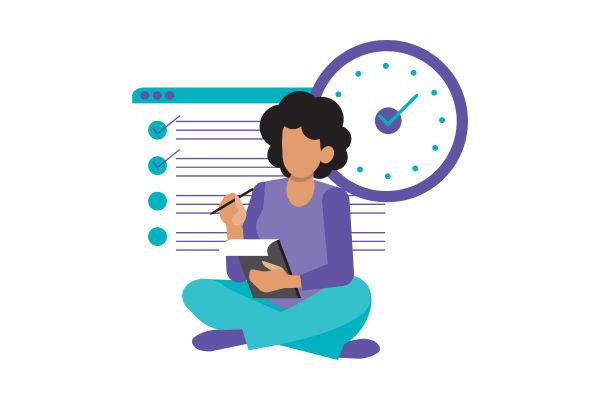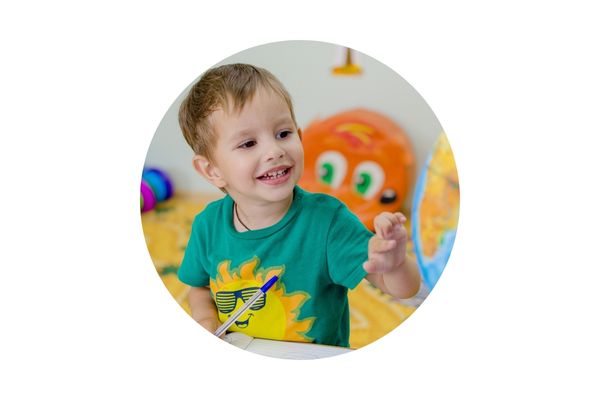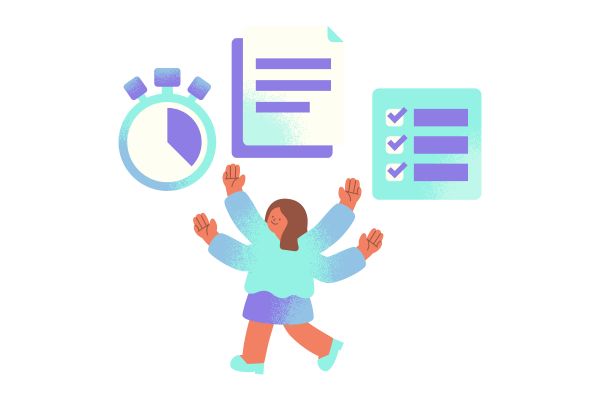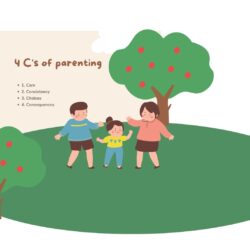For many adults, achieving “productivity” often manifests as endless to-do lists, frantic multitasking, and a constant chase against the clock. But for children, productivity is less about conquering an inbox and more about fostering a sense of agency, accomplishment, and joy while navigating their vibrant world. So, how do we guide our little learners towards harnessing this power without the stress and burnout?
What is Productivity...Really?

Before diving into strategies, let’s reframe our perspective. Forget images of robotic efficiency; think of productivity as “the ability to get things done while feeling good about it.” It’s about understanding what matters, organizing tasks effectively, and achieving goals satisfactorily. For kids, this might translate to completing homework joyfully, building a Lego masterpiece efficiently, or spending quality time with friends without constant distractions.
Tips to Develop Productivity Skills in Kids
Helping kids develop productivity skills early on is truly valuable! Here are some ideas to get you started:

Make it Fun and Engaging:
- Gamify Tasks: Turn chores and responsibilities into a point-based system with achievable goals and rewards. Use fun charts, timers, or apps to track progress.
- Play Educational Games: Choose board games, puzzles, or apps that require planning, critical thinking, and problem-solving, making learning active and enjoyable.
- Creative Time Management: Let kids create personalized schedules using colorful charts, sticky notes, or apps. Encourage them to schedule not just work but also breaks and fun activities.
Develop Essential Skills:
- Create To-Do Lists: Guide them in making simple lists, prioritizing tasks, and crossing them off as completed. This visual representation builds a sense of accomplishment.
- Set Achievable Goals: Work together to set small, attainable goals. Celebrate successes along the way to maintain motivation and show the satisfaction of achieving goals.
- Time Management: Introduce age-appropriate ways to track time, like timers or visual aids. Use them for focused work sessions with short breaks, teaching effective time management.
Foster Positive Habits:
- Be a Role Model: Show your productive habits, like planning, organizing, and managing your time effectively. Kids learn best by observing and mimicking.
- Encourage Regular Exercise: Physical activity improves focus, mood, and energy levels, contributing to overall productivity. Encourage outdoor play, sports, or other activities they enjoy.
- Teach Coping Mechanisms: Equip them with healthy ways to handle distractions or frustrations. Deep breathing, short breaks, or even silly dance parties can help them refocus and return to tasks calmly.
Additional Tips
- Make it Age-Appropriate: Tailor your approach and expectations to your child’s age and developmental stage. What motivates and works for a younger child might differ for an older one.
- Positive Reinforcement: Focus on praising effort and celebrating their progress rather than just outcomes. It builds confidence and encourages ongoing development.
- Open Communication: Talk to your child about their experiences, challenges, and preferences regarding productivity. Listen actively and adjust your approach accordingly.
Remember, fostering productivity is a journey, not a destination. Be patient, celebrate small wins, and find the best approach for your child and your family.





